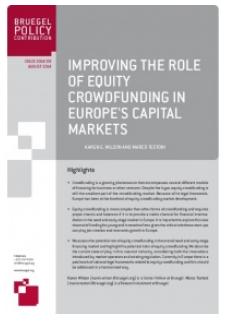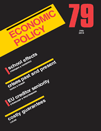Wilson, Ε. Κ. & Testoni, M. (2014) “Improving the role of equity crowdfunding in Europe’s capital markets“, Bruegel Organisation, 29 Αυγούστου. Crowdfunding is a growing phenomenon that encompasses several different models of financing for business or other ventures. Despite the hype, equity crowdfunding is still the smallest part of the crowdfunding market. Because of its legal framework, Europe has been at the forefront of equity crowdfunding market development. Equity …Read More
European Bond Market: Bubble of all Bubbles!
EconMatters (2014) “European Bond Market: Bubble of all Bubbles!“, Global Market Economics Matters, 27 Αυγούστου. European Bond Rush Right now investors in European Bonds are running over each other all in an effort to front run what the Big Banks have been begging the ECB to begin a bond buying program similar to the United States’ QE bond buying program. Tourism has its Limitations It is hilarious as European …Read More
How to jumpstart the Eurozone economy
Giavazzi, F. & Tabellini, G. (2014) “How to jumpstart the Eurozone economy“, VoxEU Organisation, 21 Αυγούστου. The stagnating Eurozone economy requires policy action. This column argues that EZ leaders should agree a coordinated 5% tax cut, extension of budget deficit targets by 3 or 4 years, and issuance of long-term public debt to be purchased by the ECB without sterilisation. The mantra is that once again it is up …Read More
European Economy, Evaluating Fiscal Policy – A Rule of Thumb
Carnot, N. (2014) “European Economy, Evaluating Fiscal Policy – A Rule of Thumb“, European Commission – Economic Papers 526, Αύγουστος. This paper introduces a simple rule for appraising the economic soundness of fiscal policies. It connects fiscal policy to a long-run debt objective, taken as an anchor, while arbitraging symmetrically between this debt objective and output stabilisation. The rule offers a benchmark to assess the evolution of primary expenditure, …Read More
The role of corporate saving in global rebalancing
Bacchetta, P. & Benhima, K. (2014) “The role of corporate saving in global rebalancing“, VoxEU Organisation, 24 Αυγούστου. Among the various explanations behind global imbalances, the role of corporate saving has received relatively little attention. This column argues that corporate saving is quantitatively relevant, and proposes a theory that is consistent with the stylised facts and useful for understanding the current phase of global rebalancing. The theory implies that, …Read More
Evaluating the cost of government credit support: the OECD context
Lucas, D. (2014) “Evaluating the cost of government credit support: the OECD context“. Economic Policy, Vol. 29, Issue 79, pp. 553-597. Governments throughout the OECD allocate a large share of societies’ capital and risk through their credit-related activities. Hence, accurate cost estimates for credit support programmes are a prerequisite for efficient resource allocation, transparency, effective management and public oversight. I find that OECD governments generally take their cost of capital …Read More
The role of creditor seniority in Europe’s sovereign debt crisis
Steinkamp, S. & Westermann, F. (2014) “The role of creditor seniority in Europe’s sovereign debt crisis“. Economic Policy, Vol. 29, Issue 79, pp. 495–552. The share of public debt that is held by lenders with preferred creditor status (i.e. the IMF, ECB, ESM, etc.) has increased substantially during Europe’s sovereign debt crisis. Empirically, we document in both macro and survey data that there exists a close relationship between the increase …Read More
Can large primary surpluses solve Europe’s debt problem?
Eichengreen, B. & Panizza, U. (2014) “Can large primary surpluses solve Europe’s debt problem?“, VoxEU Organisation, 30 Ιουλίου. For the debts of European countries to be sustainable, their governments will have to run large primary budget surpluses. But there are both political and economic reasons to question whether this is possible. The evidence presented in this column is not optimistic about Europe’s crisis countries. Whereas large primary surpluses for …Read More
Why is financial stability essential for key currencies in the international monetary system?
Goldberg, L., Krogstrup, S. & Rey, H. (2014) “Why is financial stability essential for key currencies in the international monetary system?“, VoxEU Organisation, 26 Ιουλίου. The dollar’s dominant role in international trade and finance has proved remarkably resilient. This column argues that financial stability – and the policy and institutional frameworks that underpin it – are important new determinants of currencies’ international roles. While old drivers still matter, progress …Read More
Asset-backed securities: The key to unlocking Europe’s credit markets?
Altomonte, C. & Bussoli, P. (2014) “Asset-backed securities: The key to unlocking Europe’s credit markets?“, Bruegel Institute, 24 Ιουλίου. The European market for asset-backed securities (ABS) has all but closed for business since the start of the economic and financial crisis. ABS (see Box 1) were in fact the first financial assets hit at the onset of the crisis in 2008. The subprime mortgage meltdown caused a deterioration in …Read More








